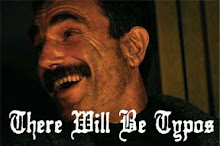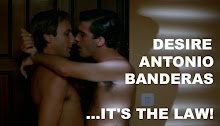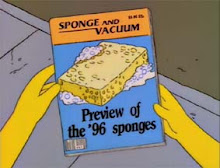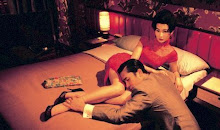Moments and Thoughts on the Best of the Noughts...
Far From Heaven (2002)
Directed by: Todd Haynes

Raymond: I've learned my lesson about mixing in other worlds. I've seen the sparks fly. All kinds.
Amidst Todd Haynes sumptuous Technicolor tragedy lies a melancholy truth about the limits and lies of progress. Cathy Whitaker (Julianne Moore), a homemaker and the Mrs. to Mr. and Mrs. Magnatech, strives to greet her surroundings with a quiet wisdom and sympathy for her fellow man. Praised for her "kindness to negroes" and homosexuals, Cathy's caught amidst a slow changing tide -- one that has her longing for her gardener and mourning her husband's late night walks. Her lovely and manicured life lays waste to untapped passions and an unsettling silence to underpin all of those stirring orchestral melodies.

Melodrama, a mostly dead genre in its classic form, is given soulful new life through Haynes, who manages to invite truth and heartache into the accepted artifice in which the genre so often soars. As much as it works as a lost Sirkian melodrama, it's also an ornately constructed ode to said films in all their cinematic purity. Key to this is Julianne Moore's exquisitely balanced performance -- one of hers and the decade's absolute finest. Masterfully and vividly she breathes life into a a character that could so easily be another stylistic element. Hayne's collaborations with Moore have yielded some of her most haunting and beautiful performances. Her careful construction of the fragile but forward thinking Cathy shows each ache and crumble behind her brilliant facade.

Matched with Edward Lachman's eye-poppingly lush visual palette and Elmer Bernstein's pitch-perfect score, Far From Heaven is about as close to cinematic heights as it gets.
Barry: I didn't ask for a shrink -- that must've been somebody else. Also, that pudding isn't mine. Also, I'm wearing this suit today because I had a very important meeting this morning and I don't have a crying problem.
Punch-Drunk Love is PT Anderson's "secret pudding," if you will. Bizarre ingredients underplayed and overshadowed by Anderson's more grand and far-reaching masterworks like Boogie Nights, Magnolia and There Will Be Blood (another of the decade's best concoctions). Its eccentricities and technical innovation swirl about the lonely existence of the enraged Barry, whose life is spent selling toilet plungers and stumbling through phone sex lines looking for a love connection. Once he finds that connection with the lovely Lena, their romance plays to the offbeat tune of a harmonium dropped from the heavens.

Anderson finds in Adam Sandler an oddball splendor unexpected in his days of Happy Gilmore, and a perfect muse in the tender sweetness of Emily Watson. While Jon Brion's score plunks and symphonies with each manic moment of Barry's morose existence, Anderson's visuals take on an otherworldly quality -- blinding light gives way to streams of color, echoing Barry's newfound passion and a reason for collecting all those Healthy Choice Frequent Flier Miles. Modern love stories rarely feel so unique and so genuine. Punch-Drunk Love leaves one dizzy, seeing stars -- overcome with a strange sensation to quell those years of silent rage. Anderson continues to be a director I'll follow just about anywhere.
Barry: I'm so sorry. I'm so sorry I left you at the hospital. I called a phone sex line -- I called a phone sex line before I met you, and four blonde brothers came after me. And they hurt you and I'm sorry. And then I had to leave again because I wanted to make sure you never got hurt again. And I have a lot of pudding. And in six to eight weeks it can be redeemed -- so if you could just give me that much time, I think I can get enough mileage to go with you wherever you have to go -- if you have to travel, for your work. Because I don't want to be anywhere without you. So could you just let me redeem the mileage? If you just give me six to eight weeks I can redeem the mileage and I can go with you wherever you have to travel.
 "Here we go..."
"Here we go..."








No comments:
Post a Comment